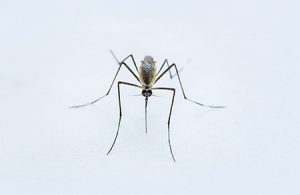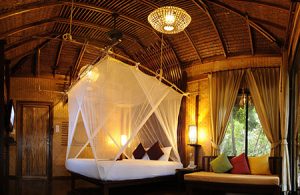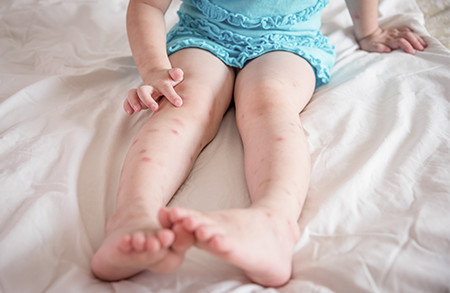The complete guide to mosquito bite protection in tropical areas
Route, passport and flight ticket are already there? The next step is vaccinations and protection from mosquito bites.
The top 10 mosquito avoidance tips you should know to safely get through the trip
Mosquitos. They are everywhere and no matter where we are, no one is immune to their biting. Therefore, it is very important to know the ways to avoid them, in Israel, but even more so - abroad, and specifically in places where a mosquito bite is much more than itching and discomfort, but carries the potential for diseases, sometimes even really dangerous, such as Zika virus, malaria, Dengue Fever or, Yellow Fever (a partial list).
Trips in in tropical regions, in jungles and trekking and less-visited areas invite amazing experiences that are different from what we know, and the experiences do not skip the mosquito experience. This is what requires us to be prepared and adopt a comprehensive coping strategy with the mosquito issue.
So how do we travel around and come back safely?
With the following 10 tips for protection from mosquito bites:
- Know your destination – mosquitos are everywhere. Having said that, there are more dangerous regions. The American Centers for Disease Control and Prevention notes that Central and South America, Sub-Saharan Africa, South and Southeast Asia are dangerous areas for mosquito bites. In these areas, extreme care should be taken and it is necessary to contact the health offices and specialist doctor or a travel clinic at least 6 weeks prior to the traveling. This recommendation is suitable for any trip in which the destination is not a Western and developed country. It is worth checking the periods during which mosquitoes are more active in the target area and try to avoid traveling during these periods. Obviously, it is better to avoid trips to areas regarding which a travel warning has been issued by the Ministry of Health.

2.Who are you calling repelling? Mosquito repellant preparations are probably the most effective solution against mosquitos and bites and they are available in spray or emulsion. It is very important to follow the instructions for the use of the product and to ensure you follow them. Apply the preparation on the exposed areas, but avoid applying on areas near the mouth and eyes, and of course from injured or painful areas. If you further need protective creams, you should first apply them and only then the mosquito repellent. The frequency of application is indicated the instructions for use and the application should be repeated as needed. It is important to purchase regulated products licensed by the Ministry of Health.
 3.Clothes do not make the man but prevent biting - Most mosquitoes do not bite through the cloth, so in areas where there is a chance for mosquitos, it is recommended to cover as many body parts as possible. This means to make sure to wear socks, closed shoes, a hat (if possible with a neckline cover or a net) and to wear long clothes. It is better to wear clothes that are not tight to the body, as this makes it harder for the mosquito to bite. Non-tight clothing will also help to ventilate the body and reduce sweating, which leads us to the next tip.
3.Clothes do not make the man but prevent biting - Most mosquitoes do not bite through the cloth, so in areas where there is a chance for mosquitos, it is recommended to cover as many body parts as possible. This means to make sure to wear socks, closed shoes, a hat (if possible with a neckline cover or a net) and to wear long clothes. It is better to wear clothes that are not tight to the body, as this makes it harder for the mosquito to bite. Non-tight clothing will also help to ventilate the body and reduce sweating, which leads us to the next tip.
4.
- Mosquitos love sweat? They do indeed. The more we sweat the more attractive we become for mosquitos. Try to keep your clothes ventilated. Clothing in pastel colors and neutral colors absorbs less heat, as opposed to black or other dark colors clothes. Therefore, the former will slightly reduce the sweating effect. Do not forget to dry the skin using a towel before you re-apply the mosquito repellent.
5.
- Mosquitos on a break - Most mosquitoes have regular operating hours, the majority of them are not active 24/7 and you should use this fact to your advantage. Most mosquitoes are active from sunset to sunrise, but it depends on the type of the mosquito. Try to adjust your route to times when the mosquitoes are less active, and if it is not possible, make sure to be protected accordingly.
6.
- Do not fly against the wind - Mosquitoes do not excel in flying, so you should stay in rooms with a fan as they will find it difficult to fly near you and the chance to be bitten is little. By the way, this is exactly the reason that if you try to catch them, you should do so with both hands rather than just one hand.
7.
- Nets are part of the story - Let's bet that you will not book a hotel without checking if it has a Wi-Fi, but apart from the internet, it is best to make sure that there are nets on the windows and when you get there, make sure that there are no holes in the holes in the nets – which, as we all know, makes them a bit less efficient.

8.
- Mosquito net at night – the mosquito net should be your best friend at night. Note that your mosquito net is not torn and remember to tuck its end under the mattress after you get into bed to ensure maximum sealing. If you meticulous about nets, fans and mosquito repellents, you should be protected from mosquitoes during the night.
9.
- Avoid areas with standing waters – it is no secret that mosquitos love water. But most mosquitoes do not move far from their habitat, so be careful not to stop in a standing water areas such as a pond or a well. In choosing a place to stay for the night it is recommended not to set up a camp close to a water source because despite the great temptation to the landscape, the price of biting may be high.
10.
- Mosquito repellent electrical devices in the room – well, it can never hurt but it is better to check that they are suitable to the sockets at your destination. Otherwise, it is a pity to carry them.
Have you got tips for us?
Do you have a helpful tip and want more people to enjoy it? Send us to it and we will make sure to publish it
Got a problem?
If you have a problem related to cleaning and maintenance of the house - we would love you to share with us. Understanding needs and everyday problems will help us develop effective solutions for you.










